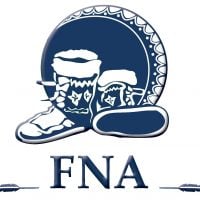Fairbanks Native Association - South Cushman Street
Drug Rehab Center in Fairbanks, Alaska
Fairbanks Native Association - South Cushman Street is an accredited Addiction Treatment Facility offering a wide range of Detoxification, Rehabilitation, Inpatient and Outpatient Care, all tailored towards helping individuals recover from substance abuse and addiction since 1967.
About Fairbanks Native Association - South Cushman Street in Alaska
The Fairbanks Native Association (FNA) is a non-profit community organization that was established in 1967 to provide healthcare and social services to the Alaska Native community in the greater Fairbanks area. FNA's South Cushman Street treatment facility offers evidence-based assessments and treatment services for a wide range of addictions and substance abuse issues. They specialize in treating opioid and drug addictions, as well as dual diagnosis and substance abuse.
FNA's South Cushman Street facility offers different levels of care and treatment methods. This includes detox, drug rehab, dual-diagnosis, inpatient, intensive outpatient, and outpatient services, as well as aftercare support. They also provide individual and family therapy, 12-step facilitation, cognitive and dialectical behavioral therapy, couples and trauma therapy, community programs, and discharge planning. FNA is accredited by SAMHSA and CARF, and accepts private health insurance. They are also affiliated with the Fairbanks Native Association.
Genders
Ages
Modality
Additional
Accreditations
SAMHSA

CARF
The Commission on Accreditation of Rehabilitation Facilities (CARF) is a non-profit organization that specifically accredits rehab organizations. Founded in 1966, CARF's, mission is to help service providers like rehab facilities maintain high standards of care.
Conditions and Issues Treated
Opioid addiction has become a significant health problem in the United States. In 2015, there were 91 opioid overdose-related deaths per day, with a substantial increase in mortality rate in 2014.
When opioid addiction has reached a point where a person’s life becomes unmanageable, treatment options are available to help them get sober. Treatment that includes medical care with medications and counseling can help a user transition into sobriety.
When someone in struggles with both addiction and mental or emotional illness, this is considered a dual diagnosis. Dual diagnosis treatment can include therapy for these issues to happen simultaneously, which will allow either of them to be treated effectively.
Sometimes people who have suffered from addiction disorder also suffer from co-occurring disorders such as depression, anxiety, bipolar disorder, etc., making them “dual diagnoses.” Dual diagnoses require specialized treatment programs where drug and alcohol addiction are addressed along with psychiatric illnesses. Some rehabilitation facilities provide patients suffering from cooccurrences a program with highly integrated services and a clean environment with few distractions to help them succeed.
Levels of Care Offered
This center offers a variety of custom treatment tailored to individual recovery. Currently available are Detox, Drug Rehab, Dual-Diagnosis, Inpatient, Intensive Outpatient, Outpatient, with additional therapies available as listed below.
One of the first things an addict should do when entering treatment is to abstain from using illicit drugs completely. Depending on the length of time that the person has been using, the addict may have to go through alcohol or drug withdrawal. Fortunately, detox doesn’t have to be done alone, and withdrawal symptoms can be managed medically in an inpatient or outpatient setting. While detox may be uncomfortable, it is not life-threatening. Detoxification allows the addict to rid the body of all traces of drugs or alcohol and gives the addict a clean slate for their recovery.
Inpatient treatment for alcoholism or drug addiction is an option that provides the addict with a supportive environment in which they can stop using. After detox, an inpatient treatment center provides a structured environment for the addict to recover from their addiction and begin taking steps toward a lifetime of sobriety.
This type of treatment is appropriate for addicts that are most in need of intensive care and supervision. This includes those who were unable to quit on their own, those who need more structure than they can get in outpatient treatment, and those whose addiction has led them into legal trouble or severe health problems.
The Intensive Outpatient Program offered by Fairbanks Native Association - South Cushman Street is designed for those who need intensive care but would rather get it in the comfort of their own home. The treatment programs vary in duration and intensity and can be tailored to suit the patient’s needs. The program includes regular visits to the facility, though the overnight stay is not needed. IOP is suitable for patients who have been treated in residential treatment programs and are in the transition phase. It helps the patient live at home and discharge some work or school responsibilities even while undergoing treatment. The patients gradually get back to their routine life with the support of a friend or family member.
Outpatient treatment is often used for drug addicts in drug rehab. Outpatient treatment consists of counseling and therapy sessions. This form of treatment is also called ‘day-treatment’. The outpatient treatment process begins with the addict’s initial detox period, lasting about ten days.
Outpatient treatment is used for those who are at moderate risk for ‘slipping back’ into the addiction, for those who:
- Are not currently experiencing any side effects from withdrawal and can handle social pressure
- Can handle stressors that might trigger relapse
- Have a stable living environment or have moved out of their previous environment, which was not conducive to being sober
- Have a support system that allows them to go to a facility a few times a week while still keeping their current responsibilities
- Have no legal obligations, being either on parole or probation, that require them to seek treatment at a mandatory facility
- Are not currently experiencing any side effects from withdrawal and can handle social pressure
- Have a stable living environment or have moved out of their previous environment, which was not conducive to being sober
Therapies & Programs
Because no single treatment is effective for all addicts, the goal of treatment and therapy should be to figure out what works best for each individual. Tolerance and withdrawal levels differ from person to person, affecting the treatment intensity required. Addiction treatment should aim to help addicts develop healthy coping mechanisms for dealing with their addiction and its underlying causes.
Group therapy can help build a stronger support system and give addicts in Fairbanks, AK insight into their addiction that they gain through shared conversations. Group therapy occurs in a controlled group environment, exclusive of one on one meetings. This makes it safer for patients to feel comfortable sharing the struggles they’re going through and gaining perspective.
Trauma therapy is beneficial for people who are recovering from drug addiction because it helps them heal from past traumas that may have caused them to turn to harmful substances or led them to experience negative emotions that contributed to their destructive behaviors.
This type of treatment works by processing difficult experiences so individuals can learn how to process these events without having to turn to substances for coping.
Trauma therapy can help addicts in the following ways:
- Helps individuals understand their experiences and emotional responses to difficult events, including why they turned to drugs or alcohol
- Provides them with comfort and support while working through difficult emotions related to these traumatic experiences
- Offers an opportunity for addicts to have a voice and be heard, which can improve their self-esteem
- Can help them develop coping skills so they can better respond to triggers instead of turning to substance abuse.
Payment Options Accepted
For specific insurance or payment methods please contact us.
Is your insurance accepted?
Ask an expert, call (888) 674-0062
Fairbanks Native Association Associated Centers
Discover treatment facilities under the same provider.
- Fairbanks Native Association - Hughes Avenue in Fairbanks, AK
- Women's and Childrens Center in Fairbanks, AK
- Fairbanks Native Association - Youth & Young Adult Services in Fairbanks, AK
Learn More About Fairbanks Native Association Centers
Additional Details
Specifics, location, and helpful extra information.
Fairbanks, Alaska 99701 Phone Number(907) 452-6251 Meta DetailsUpdated November 25, 2023
Staff Verified
Fairbanks Native Association - South Cushman Street Patient Reviews
There are no reviews yet. Be the first one to write one.
Fairbanks, Alaska Addiction Information
Alaska is enduring a multi-faceted drug and alcohol abuse problem. Heroin-related overdoses are 50% higher in Alaska than in the rest of the United States. Methamphetamine use is a major contributing factor to violent crime in Alaska. More than 60,000 Alaskans need some sort of treatment for substance abuse and/or addiction.
The drug addiction problem in Fairbanks, AK is relatively bad. In 2016, there were 153 drug overdose deaths in Fairbanks, Alaska. Alcohol is the most commonly abused substance with 37% of residents reporting drinking. 8% of Fairbanks residents reported using illicit drugs. If you or someone you love is struggling with addiction, there is help available. Treatment options include individual and group counseling, 12-step programs, medication-assisted treatment, and inpatient and outpatient programs.
Treatment in Nearby Cities
- Homer, AK (378.6 mi.)
- Ketchikan, AK (853.4 mi.)
- Nome, AK (522.6 mi.)
- Dillingham, AK (529.7 mi.)
- Saint Paul Island, AK (917.7 mi.)
Centers near Fairbanks Native Association - South Cushman Street
The facility name, logo and brand are the property and registered trademarks of Fairbanks Native Association - South Cushman Street, and are being used for identification and informational purposes only. Use of these names, logos and brands shall not imply endorsement. RehabNow.org is not affiliated with or sponsored by Fairbanks Native Association - South Cushman Street.






